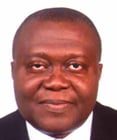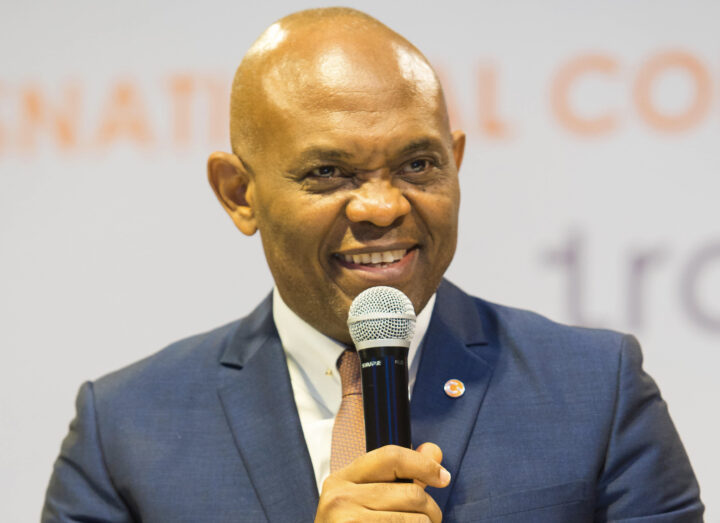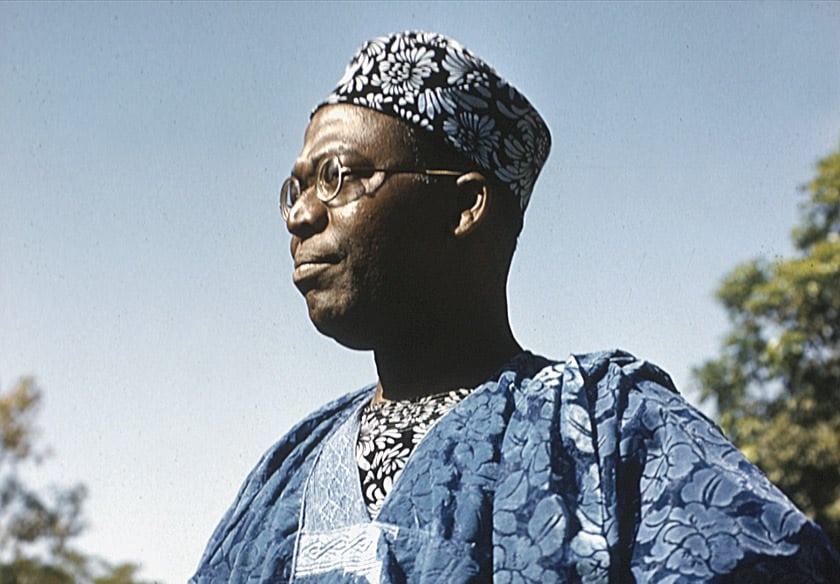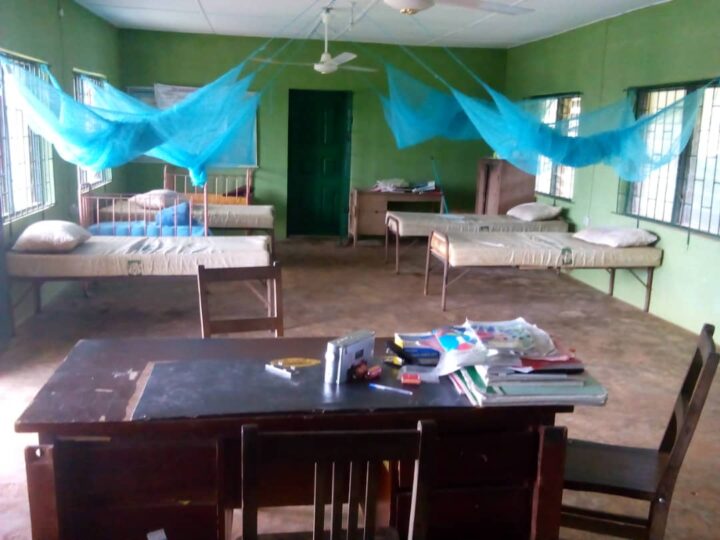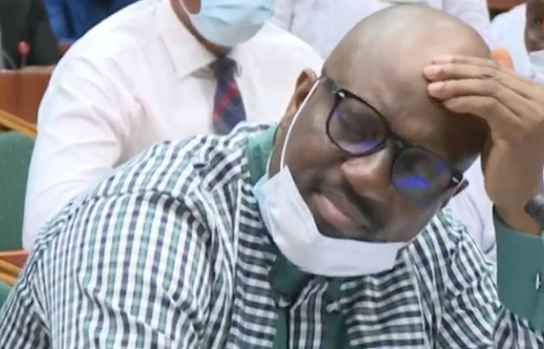A great mind such as Tony Elumelu, founder of the Tony Elumelu Foundation (TEF); Chairman of UBA, Africa’s Global Bank, and Chairman of Heirs Holdings, an African investment conglomerate, amongst several other interests, needs little or no introduction. He is God’s gift to Nigeria, and then Africa. But Elumelu’s larger than life image obviously transcends the boundaries of Africa, making him a global citizen. The focus of this essay will be more about his amazing philanthropy and burning desire to create enduring prosperity and social wealth in Africa by empowering entrepreneurs and enhancing competitiveness of the private sector.
The Tony Elumelu Foundation (TEF) which is the philanthropic arm of Heirs Holdings was launched 10 years ago. Since then, TEF has created a legacy of impact and transformational changes in different sectors across Africa including a new strategic approach to philanthropy by leveraging influence and impact. It reminds one of the vision of Rotary which is similar to that of TEF. Rotary is a global network of 1.2 million neighbours, friends, leaders and problem-solvers who see a world where people unite and take action to create lasting change – across the globe, in their communities, and in themselves.
TEF is funded by an annual grant from Heirs Holdings and supported by the group’s investee companies. In the first five years of its existence, the Foundation spent over N2 billion in furtherance of its mission. TEF has also supported the philanthropic goals of other institutions and not-for-profit organisations working in and for Africa.
Upon inception, the four key focus areas of the Foundation were: supporting entrepreneurship; enhancing competitiveness; policy intervention and leadership development. These strategic goals have continued to propel TEF to break new grounds with significant outcomes but the flagship project is the Tony Elumelu Foundation Entrepreneurship Programme (TEF Entrepreneurship Programme) which was launched on January 1, 2015. The TEF Entrepreneurship Programme represents the vision of Elumelu to empower a new generation of African entrepreneurs by supporting the business goals of at least 10,000 entrepreneurs across Africa over a 10 year period with the aim of creating over one million jobs and $10 billion in additional revenue for the continent.
Advertisement
When the TEF Entrepreneurship Programme was launched, President Muhammadu Buhari was obviously very proud of Elumelu. In his view, the TEF Entrepreneurship Programme was essentially a proudly Nigerian project although it has footprints all over Africa. President Buhari was effusive in his praise of Elumelu for his vision for Africa. “I’m pleased to see that efforts like this aimed at promoting self-help and creating jobs and opportunities for Africa’s youths are gaining ground,” President Buhari remarked. “This demonstrates that the work of re-building our country (as well as the wider continent) is one all patriots and stakeholders must actively engage in. I’m proud that Nigeria (and a Nigerian) is taking the lead in the effort to promote self-worth, encourage entrepreneurship, create jobs, build and promote networks for intra-African trade, business collaboration and investment,” the President added. This was clearly a major endorsement for the Tony Elumelu Foundation, coming five years before the African Continental Free Trade Agreement (AfCFTA) was launched by the African Union to lower trade and investment barriers between African countries.
It shows Elumelu is a visionary and he was creating a future for Africa when he founded TEF in 2010. Innovation is critical to creating the future. Brian Halligan is an American executive who co-founded HubSpot, an inbound marketing and sales software company. He is also an author and this is what he said about innovation: “Imagine the future and fill in the gaps.” A lot of innovation is required in different sectors of the economy and that is what Elumelu is doing in his transformational journey by using private capital to create wealth in Africa through broad based partnerships with governments, companies, individuals and philanthropies across the globe.
The TEF founder and UBA Chairman, says entrepreneurship is the most effective way to establish true prosperity and he has continued to expand this vision to touch lives by providing seed money for young African entrepreneurs. But more importantly, the TEF founder wants a paradigm shift from the existing narrative whereby Africa depends largely on aids from multi-lateral institutions; it is not sustainable and it confers on Africa a weaker negotiating position in international trade. For example, see the damage from COVID-19 pandemic on the economies of African countries – it just shows how vulnerable the continent is; we do not have buffers to mitigate serious economic headwinds.
Advertisement
According to Dr Akinwunmi Adesina, President of the African Development Bank (AfDB), COVID-19 could cost Africa’s GDP loss of between $22.1 billion and $88.3 billion in the worst case scenario. Economic recession is already here with us, and as African countries look up to the financial capitals of the world for debt forbearance, not forgiveness, Africa’s total public debt will be over $2 trillion in 2020, Adesina further stated. According to data available in the TEF Impact Report, this is the same Africa that has an annual GDP of about $2 trillion, comparable to India or Russia. Twelve African economies are growing at 6% per annum and have been doing so for six years. Every year, $72 billion is invested in infrastructure projects across Africa and by 2030, it is estimated that Africa’s agriculture sector could generate $1 trillion annually.
For Africa to rise above this constant challenge, the solution lies with African entrepreneurs creating a value driven and robust economy that is sustainable. This was precisely why Elumelu created the economic philosophy known as Africapitalism with the TEF Entrepreneurship Programme serving to catalyse the vision. He is not saying that aid is bad per se, but we should stop complaining and get our priorities right. The young entrepreneurs of Africa can become economic disruptors once they are empowered, thereby changing the story from aid to trade and investment.
Since 2015, TEF has been disbursing up to US$10 million yearly in direct seed capital to empower young entrepreneurs across Africa under the TEF Entrepreneurship Programme brand, and this vision will be sustained for 10 years until 2025 (the first cycle) by which time $100 million would have been invested in the project by the Tony Elumelu Foundation. According to Elumelu, Africapitalism is the private sector’s commitment to Africa’s development through long term investment in strategic sectors of the economy that creates economic prosperity and social wealth.
For the private sector to thrive there should be an enabling economic environment in the form of investment-friendly government policies. But setting and implementing policies – different layers of avoidable bureaucracy and red tape can frustrate such policies – takes time. TEF discovered that research was a critical component of the strategy for the private sector to unlock the investment potential in Africa so that entrepreneurship can flourish. To bridge the gap, the Africapitalism Institute was launched during the World Economic Forum in Africa which held May 7 – 9, 2014 in Abuja.
Advertisement
The Institute is an independent non-profit think tank with a mission to broaden and accelerate economic prosperity and social wealth in Africa. To achieve this objective, the private sector must have the capacity to create and multiply local value across Africa. The Institute – which is the research and advocacy arm of the Foundation; call it the “brain box” if you like — provides rigorous research, curate and communicate new ideas (innovation), develop and test the ideas, directly engage key stakeholders and advocate for public policies and business practices that will unlock investment opportunities in Africa.
Make no mistake about it, the investment potential in Africa that Elumelu refers to is huge. As noted by Dr Strive Masiyiwa, another African business leader and investor from Zimbabwe in his Facebook post, Africans in the diaspora contribute significantly to the wealth of African countries. “According to official statistics,” Masiyiwa wrote in his insightful FB post, “Africans in the diaspora send home about $65 billion per year. If this represents 10% of their income, then their total income is about $650 billion.” This is a lot of money which is more than the total income of all the 200 million people living in Nigeria — our GDP is about $550 billion. The data indicates that about 25 million Nigerians form part of the African Diaspora nation (about 60 million Africans belong to this community) and they remit about $26 billion back home annually – almost 40% of our oil revenue before COVID-19 pandemic hit us below the belt.
An African Development Bank (AfDB) 2018 report indicated that Africans in the diaspora send home about $82 billion a year which Masiyiwa also cited in his FB post. After Egypt which remitted about $29 billion, Nigeria came second with annual remittances by our brothers and sisters in the diaspora amounting to $26 billion, according to the report. These are funds transferred to family and friends but most of it is not invested; even then, the annual remittances are more than what comes into Africa as Foreign Direct Investment (FDI). In 2018, FDI into Africa was about $46 billion compared to $82 billion remitted by Africans in the diaspora.
Masiyiwa who has spent most of his adult life as an African Diasporan – over 32 years actually; even now, he’s based in London, UK – is very passionate, just like Elumelu, for Africa to explode with growth and development in different sectors. He believes that there are several business opportunities in the continent, adding that Africa’s entrepreneurship climate is progressively improving. However, he explained in his five-step guide to Africans in the diaspora wishing to invest in Africa that they must look before they leap. A Brookings report, according to Masiyiwa, stated that greater innovation and investment from business is essential to meet Africa’s unfulfilled demand for goods and services, close the gap in its infrastructure, create jobs and decrease poverty.
Advertisement
It is evident that Elumelu and Masiyiwa are two African billionaires with single minded determination to change the fortunes of Africa through entrepreneurship. If I understand the way these two phenomenal and innovative African investors are thinking, Africa should not be a poor continent, and this thinking is rooted in the Africapitalism philosophy. According to the IMF Data Mapper World Economic Outlook, the top ten economies in Africa in terms of their economic size by GDP — which varies from time to time — are as follows: Nigeria ($494.83 bn), South Africa ($369.85 bn), Egypt ($353 bn), Algeria ($178.64 bn), Morocco ($124.54 bn), Kenya($109.13 bn), Ethiopia ($103.61 bn), Angola ($88.98 bn), Ghana ($69.76 bn), and Tanzania ($67.24 bn).
After reviewing the Impact Report of the Tony Elumelu Foundation from 2010 – 2015, Elumelu believes strongly that the most transformative changes in Africa will be created by entrepreneurs who have brilliant ideas and exhibit a passion and innovation in solving local problems and creating social wealth. Let me share a personal experience. In 2014, our public relations and marketing management company was honoured alongside 49 other companies at Eko Hotel, Victoria Island, Lagos by the Tony Elumelu Foundation and Allworld Network on March 22 which is Elumelu’s birthday. That partnership was a pioneering effort to promote some of the fastest growing but unlisted companies in Nigeria in the “Fast Growth 50” or “Nigeria50” awards. The partnership helped to attract new investors, customers, growth partners and talent for the 50 companies through visibility economics by showcasing their efforts and results on an international scale.
Advertisement
I recall that the world renowned professor of competitive strategy, Michael Porter of the Harvard Business School, spoke to us. “Strategy is all about winning in the market place by gaining competitive advantage,” Prof Porter explained in one of the sessions. TEF later published The Success Factor to codify the lessons and successes of Nigeria50 and it featured the career of each company CEO/founder, enumerating the steps they took to build their companies. Over 5,000 copies of the book were distributed in Nigeria to young graduates and entrepreneurs.
Subsequently, I became a mentor of the TEF Entrepreneurship Programme from 2015 with the first cohort. Mentors are a vital part of the Tony Elumelu Foundation Entrepreneurship Programme which supports entrepreneurs across Africa with $5,000 non-refundable seed capital to build their businesses. They also receive training, mentoring and through peer-to-peer engagement, they build a formidable network and alumni. Once the business is launched, Tony Elumelu entrepreneurs may receive additional funding of $5,000 each as loan or equity.
Advertisement
Over 3,000 mentors from 46 countries around the world have provided guidance and support to the nearly 10,000 entrepreneurs that have been empowered by the Foundation across Africa. In the first year of the highly competitive programme, over 20,000 applications were received from 52 countries and the largest number of applications came from Nigeria (49%), followed by Kenya (17%), and Uganda (4.5%). Since then, the numbers have quadrupled every year and to date, the Foundation has received nearly 600,000 applications for its flagship programme. In response to these numbers, the Foundation launched TEFConnect, its proprietary digital platform for African entrepreneurs, where TEF provides comprehensive capacity-building support, advisory and market linkages for nearly one million African SMEs.
Advertisement
The TEF Entrepreneurship Forum which is the physical convening of these entrepreneurs has hosted African Presidents including President Paul Kagame of Rwanda, President Uhuru Kenyatta from Kenya, President Felix Tshisekedi of DRC, President Macky Sall of Senegal, President Nana Akufo-Addo of Ghana, Prime Minister Ruhakana Rugunda from Uganda, Vice President Yemi Osinbajo of Nigeria, amongst others, and it has been recognised around the world for its ambition, size and scale – it is the largest gathering of entrepreneurs in the world each time it is held.
Apart from TEF Entrepreneurship Programme, the Foundation also launched initiatives such as fostering competitiveness (to attract local and foreign investment); impact investing (making money while solving social and environmental problems); Elumelu Professionals Programme (access to world class talents); direct intervention in early stage companies (social technology ventures) through a partnership with Co-Creation Hub (BudgIT and WeCyclers were two of the 20 beneficiaries and they received $5,000 seed capital each) and policy and capacity building (strategic engagement between policy makers and the private sector).
TEF also promotes thought leadership to achieve its goals. In addition, forging quality partnerships and collaborations with relevant organisations and individuals have become an overarching strategy for the Foundation. These partnerships are broad in scope but they are well focused and result-oriented. Some of the outcomes include research, ideation and publications that cover a wide range of socio-economic and investment related topics. Policy makers, thought leaders, journalists and entrepreneurs will find these publications useful.
Elumelu is not alone on this remarkable transformational journey across Africa for the creation of a progressive economic environment. He is ably supported by his lovely wife, Awele, a distinguished medical practitioner in her own right. Awele is a Trustee of TEF and founder of Avon Medical Practice. She also oversees the healthcare investments of Heirs Holdings including Avon HMO, one of Nigeria’s leading health maintenance organisations. The Tony and Awele Elumelu Prize was established to build the next generation of African leaders and entrepreneurs by collaborating with 18 partner institutions across Africa. The awards have been a source of motivation for graduates from African universities who strive to succeed against all odds. Since 2011 when the prize was launched, nearly 140 graduates have received grants for their start-ups.
Elumelu is of Delta State origin. His late dad hailed from Onicha-Ukwu (that is also where Chief Sylvester Moemeke, the advertising veteran of Lintas Advertising fame, comes from) while his mother (the Ada Onicha) is from Onicha-Ugbo, two idyllic towns in Aniocha North local government area of Delta State. By the way, Onicha-Ugbo where Elumelu grew up and had his early education is also popularly known as “Jesus Town”. Maybe Elumelu’s kindness, generosity and humanitarian endeavours have something to do with where he comes from. Naming Onicha-Ugbo “Jesus Town” was clearly not a mistake as it suggests that they are prayerful people and they pray for good things in their hearts.
The Holy Book says, “Out of the abundance of the heart, the mouth speaks.” (Matthew 12:34). The spiritual injunction implies that everything we speak, think or do will attest to what the abundance of our heart brings forth. And in Luke 6:45, we are also reminded that, “The good man brings good things out of the good treasure of his heart.” As we can see, Onicha-Ugbo and Onicha-Ukwu people’s prayers have been answered; it means prayer works — Elumelu is a good man and worthy ambassador of both communities in whom they are well pleased. They love him and they are also proud of him for his spectacular achievements as an accomplished entrepreneur.
If Elumelu were an artist, his canvas would have been broad and colourful; he opted to be a global celebrity and not a local champion. Each stroke of his brush on the canvas would have represented his deep connection with humanity as a father, husband, pan Africanist, visionary, thinker, economist, banker, philosopher, philanthropist and care giver, mentor, goodwill ambassador, patriot, business leader, investor and serial entrepreneur. We definitely need more great men and transformational leaders like Elumelu from Africa to make the world a better place. One more thing: Elumelu should become an honorary Rotarian in view of his excellent services to humanity and the Rotary Club of Lagos in District 9110 would be glad to honour him.
As the Tony Elumelu Foundation marks its 10th anniversary, I have no doubt in my mind that TEF’s impactful service to Africa will be sustained for another cycle of 10 years. I congratulate Elumelu for his vision and exemplary leadership; I also salute the entire team for their outstanding achievements.
Braimah is a PR and marketing strategist based in Lagos.
Views expressed by contributors are strictly personal and not of TheCable.
Add a comment
